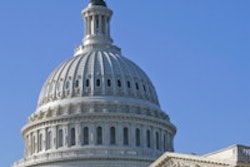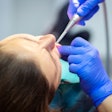
Citing California's improving budget outlook, dental care advocates have been urging Gov. Jerry Brown to use unexpectedly higher tax revenues to reinstate dental benefits for adult beneficiaries of Medi-Cal, the state's Medicaid program.
But in announcing his revised 2013-2014 state budget yesterday, the governor refused to restore adult dental services, despite 100% matching federal funds that will be available for people who will be newly eligible for Medi-Cal under the Patient Protection and Affordable Care Act (ACA).
California has benefited from an unexpected $4.5 billion windfall in personal income tax receipts this year. Gov. Brown's revised budget of $96.4 billion for the next fiscal year does include increased spending for education.
State legislators had hoped to use an anticipated surplus to restore cuts made during the recession, such as the elimination of dental benefits that were cut in 2009 from Medi-Cal. But Brown said actions by the federal government -- including automatic spending cuts and the increase in the payroll tax -- eliminated any surplus.
However, Anthony Wright, executive director of the nonprofit advocacy group Health Access California, said restoring dental benefits makes sense, especially since there will be federal matching funds available.
"For the newly eligible people on Medi-Cal, the dental benefit will be 100% federally funded," he told DrBicuspid.com, referring to the 1.4 million California residents who will become eligible for the program in January as the healthcare law is implemented.
Oral Health
Conrado Bárzaga, MD, executive director of the Center for Oral Health, called Gov. Brown's refusal a "misinformed decision."
"Gov. Brown is missing an opportunity to reinstall those dental benefits because they would be paid for by the ACA; that's the big issue," he told DrBicuspid.com. "He thinks he's going to save dollars, but at the end of the day people who don't have access to dental services will end up in emergency rooms [ERs]. They will just be given antibiotics and anti-inflammatory pain medication, and they will go back with the same problem without any solution. And taxpayers will be stuck with the bills."
A small investment of, say, $60 million would have meant California would get $60 million in matching federal funds, according to Dr. Bárzaga. Brown is taking a very conservative approach to the budget, "even though we have a surplus that we haven't had in decades," he said.
Growing bipartisan effort
Currently, the federal government pays 50% of the costs for those in Medi-Cal.
"While there is a general reluctance to make restorations [to the budget], there is a growing bipartisan effort to prioritize dental services as something to be restored," Wright said. "I think there's a recognition that cutting dental benefits raised a lot more problems than it's worth, because people will be forced to turn to hospital ERs for help."
Wright surmised that the state is concerned about future costs, because it will have to pick up 5% of Medi-Cal costs in 2017. But the federal government will still provide a 9:1 match in funds, he noted.
The federal government will pay 100% of the costs from 2014 to 2016 for states that expand their Medicaid programs. But the federal share will still be 90% of the costs by 2020, according to Wright.
Wright and Dr. Bárzaga pointed out that poor dental care has long-range consequences.
"It has impacts well beyond teeth," Wright noted. "For people without proper dental care, it's a lot harder for them to get jobs without front teeth. Many of them show up at ERs with far worse and much more expensive conditions."
Many community health clinics have invested in dental facilities, but they are now mainly used to provide Denti-Cal coverage for children since money for adult care was cut, he added.
Reimbursement rate cuts
Wright also criticized the governor's plans to cut reimbursement rates to medical providers.
"People commonly ask me if the ACA includes dental care," Wright explained. "For kids, yes, but for adults it's available as a benefit you can buy on the insurance exchange Covered California. But it's up to the state whether it's included in the Medicaid package, and right now California doesn't include it -- and that's a problem.
Gov. Brown also said the state will handle the expansion of Medi-Cal as part of the implementation of the ACA, instead of handing that responsibility to the counties. That would involve taking back money the state now gives to counties for the medical care of indigent people and using it for social welfare programs.
Wright has proposed a compromise that would allow counties to keep the funding for three years while requiring counties to be responsible for providing the poor with a medical home and primary preventive care. That alternative would make counties accountable and save the state money, he said.
Dr. Bárzaga assailed Brown's plan to move people from the Healthy Families program to managed medical care. Instead of using federal money to boost reimbursement rates, the switch will save the state money in administration costs, he said.
"The state is securing contracts with managed medical care providers for cents on the dollar in funding from the federal government," Dr. Bárzaga said. "It won't improve the quality of care or increase access to care."



















